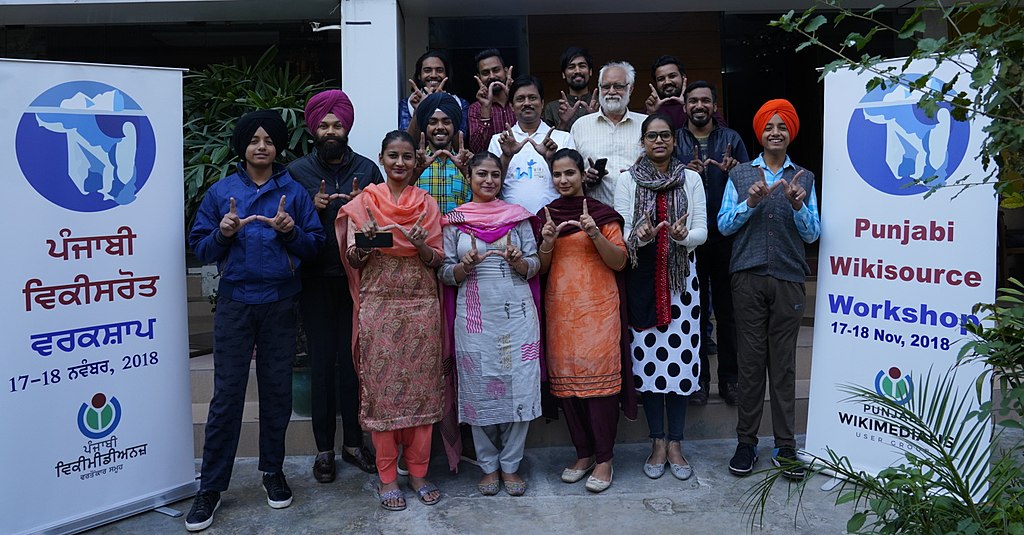Punjabi Wikisource Training Workshop, Patiala
-
Access to Knowledge

Jayanta Nath
6 December 2018
This is the second time when I met Punjabi Community. They had organized a Wikisource Workshop at Patiala specific for Punjabi Wikisource. When I reached the workshop venue, I was showing that all fifteen participants were eager to learn. The workshop event page can be viewed here.
It was scheduled from 9:00 am to 6:00 pm on November 17-18th 2018. The advantage of this present Punjabi Wikimedia Community, most of the member is coming from Punjabi Literature students. And I was surprised that two of them are so little class, Eight Standard students. This was the first Workshop happening in India about Wikisource. Prior to the event, I had prepared with all Gadgets.
The event started half an hour later than planned, as most of the participants took longer to make it to the venue. We found it difficult to demonstrate the examples. The biggest challenge was not a technical one, but connecting with the audience. We ended up lecturing less and demonstrating more. I started with a small introduction to Wikisource with details What is Wikisource & What is the aim of the Wikisource and Indic Wikisource Stats explanation.
After introduction I explained and demonstrated the workflow of Wikisource, adding text, finding the source, basic copyright checking, creating Index pages, OCRed the page, Proofreading, layout with typography, Validation, Transclusion and Finishing touch. Then I was demonstrated Character Insert Tool: with Gadget-charinsert. After watching this all the participants were so happy because the proofreading will be reduced and make easy. Show the most used templates as best practice in Wikisource world.
In the workflow, we had started with uploading a file in commons and local as per copyrights status, as tool Chunked_upload and Vicuna uploader. The first day was ended with few edithon and interface change in Punjabi Wikisource.
2nd day was started with On the brighter side, there were many interesting and engaging queries from few of the participants who had already proofread pages on Wikisource. Next workflow started with creating an Index file with IndexForn.js Gadget and fill with all meta from commons and remaining data was filled by participants. Then I explained the method of OCR4Wikisource by python script and offline Tesseract OCR.
Some of the namespace and extension needed on Punjabi Wikisource I explained about Author Namespace, Publisher Namespace, Short URL Extension ticket on phabricator, Book2scrol tool needed for better pagination and Transclusion, Install/Update the “tesseract-pan” package on Tool Forge for OCR
One of the best lessons we learned from the event was that it is very important to know the audience well in advance and to structure the workshop accordingly. The participants seemed to prefer the visual editor over editing the wiki markup for proofreading.
The final achievement was every participant understand the importance of Wikisource and the last one is the best for my motivation.
“After this workshop by Jayanta Nath, I understand the significance of Wikisource and also that it is not a project which is secondary to Wikipedia.”
Charan Gill (Highest contributor on Punjabi Wikipedia)
The event was a success in that it introduced the Wikisource to various ways of getting involved with the Wikimedia movement, thereby changing the perception that the only way to get involved is by proofreading online.